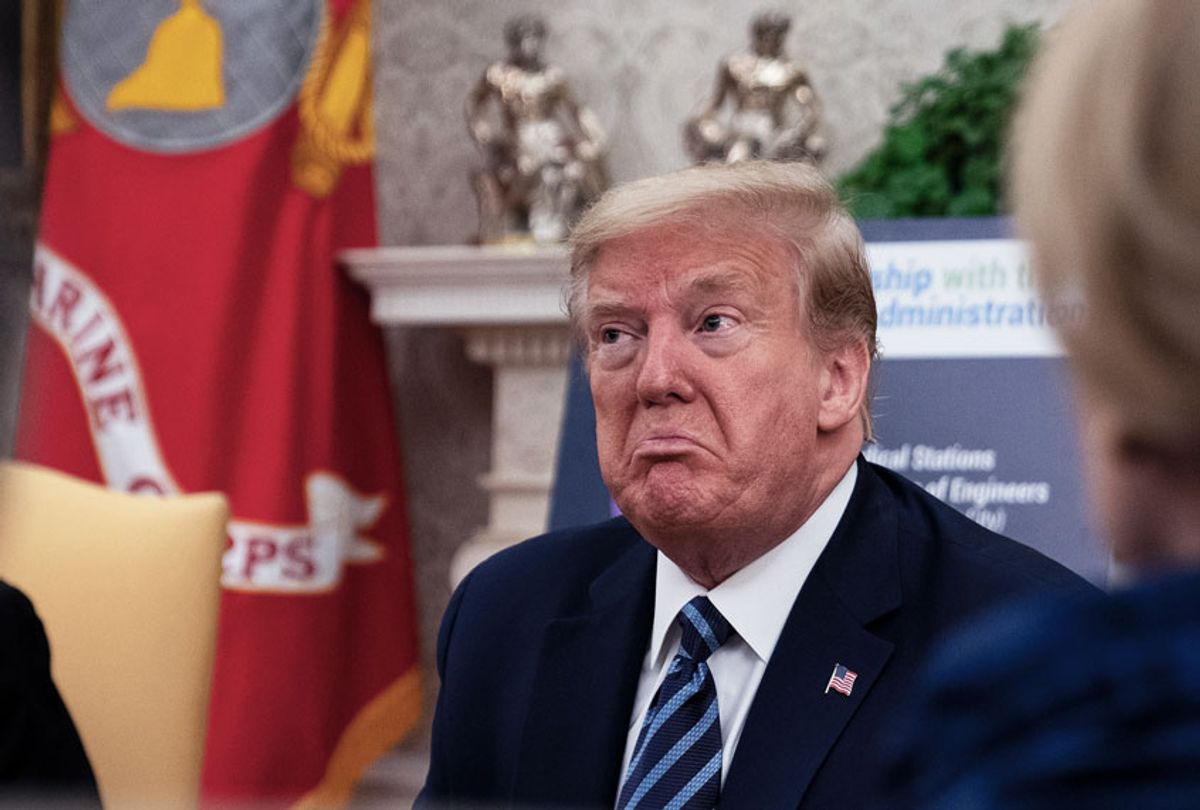Administration officials have confirmed that the White House, breaking with decades of precedent, will not publish a mid-year economic forecast—a decision critics said is an obvious move to shield President Donald Trump from the political implications of a tanking economy ahead of November's election.
"Trump figures if he doesn't tell people they're out of work, they won't know they're out of work," tweeted writer Gerry Conway.
News of the decision came from the Washington Post Thursday morning.
As the Post reported:
The White House is supposed to unveil a federal budget proposal every February and then typically provides a "mid-session review" in July or August with updated projections on economic trends such as unemployment, inflation, and economic growth.
[...]
The economic projections are jointly produced by a "troika" consisting of the director of [the Office of Management and Budget], the chair of the White House Council of Economic Advisers, and the treasury secretary.
The economic downturn triggered by the pandemic has left millions of Americans out of work, led to double-digit unemployment, and stretched the country's meager social safety net to the limit. On Thursday, the Department of Labor reported that another 2.1 million Americans filed for unemployment benefits, bringing the total number of people who have filed since the pandemic began to at least 40 million.
According to Politico, "administration officials said the data is too volatile to produce reliable projections," making the forecast problematic as it could "mislead the public." But that claim was rejected by Bipartisan Policy Center vice-president Bill Hoagland, who told the Post that there was "no logistical reason they couldn't do it."
"It seems more likely they do not want to bring attention to the high level of unemployment they'd have to project for this year, and into next year," said Hoagland.
The tactic could backfire, tweeted Alabama Media Group columnist Kyle Whitmire.
"Public officials' willingness to withhold information that will inevitably come out never ceases to astound me," said Whitmire. "It's like refusing to release a weather forecast that says a hurricane will make landfall tomorrow. Eventually, the truth will tell itself."
For now, though, the immediate benefit for the Trump White House is clear, former Congressional Budget Office director Douglas Holtz-Eakin told the Post.
"It gets them off the hook for having to say what the economic outlook looks like," Holtz-Eakin said.



Shares